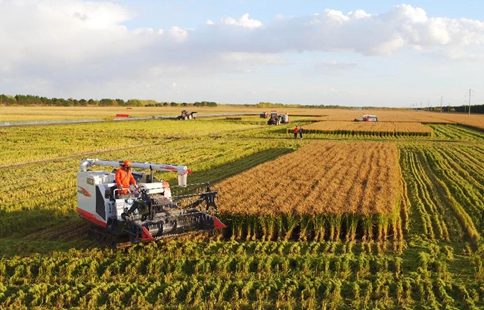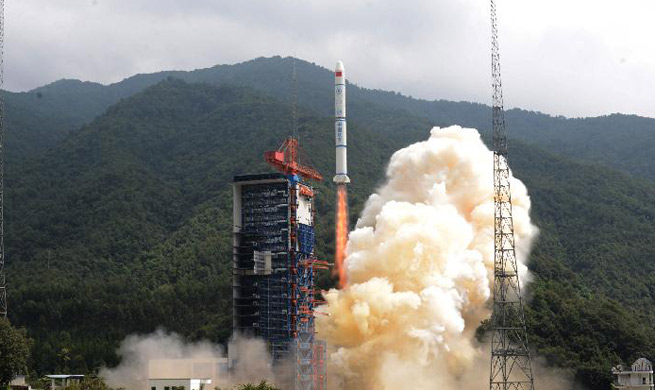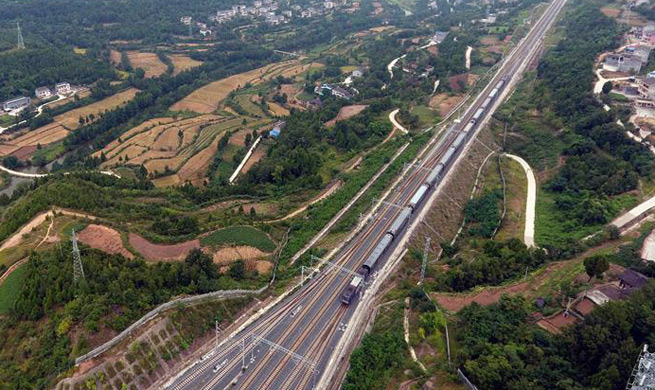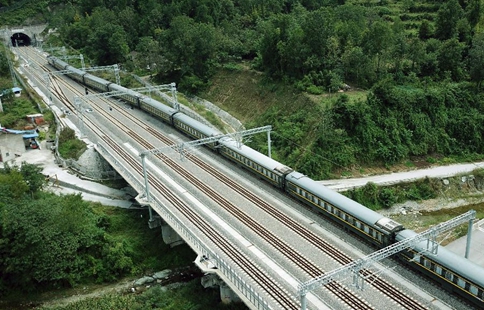KUNMING, Sept. 29 (Xinhua) -- In the past decade, you needed an ID card to book flight tickets, reserve hotel rooms and open bank accounts, but now people no longer need such documents to prove their identities: their faces alone are enough.
Ms Wu had just arrived at a hotel in Kunming, capital of southwest China's Yunnan Province, when she realized she had left her ID card at home. Initially, she thought she would have to go through the hassle of having to go back home to fetch it or apply for a temporary ID certificate at a nearby police station. Instead, she just stood in front of a machine that took her photo, which immediately brought up her personal information on the hotel's computer screen after matching her on police database. It took less than 10 seconds.
"I used to see this in the movies, now it is a reality," Wu said.
In Kunming's Xishan district, a facial recognition system with over 95 percent accuracy will be applied at all hotels in the next two months. The same technology has been implemented in Shenzhen, as well as Jinan, capital of Shandong Province in east China.
"The photos captured are not kept in a local cache but sent to match with police databases in real time, so the system has high security," said Zong Zhengyong, operator of the system at a hotel.
Advanced technology is changing human life at an unprecedented pace. In the 1950s, the birth of credit cards started to replace cash. Later the Internet opened a new information era. Today, the shared economy and mobile payments have become an indispensable part of daily life.
Not only hotels, but banks, food delivery services and even public toilets are taking advantage of facial scanning.
At three Agricultural Bank of China's (ABC) branches in Jinan, a quick scan of the face allows the account holder to withdraw 3,000 yuan (457 U.S. dollars) each time.
China Merchants Bank and the Construction Bank of China have also introduced similar technology.
"All you have to do is to press the facial recognition button, scan your face, enter your phone or ID number, and your transaction amount and password," said Zhang Baojing, a bank manager at ABC.
Beijing's Temple of Heaven has used it in toilets to deter toilet paper theft. And traffic police in many Chinese cities are using facial scanners to catch jaywalkers.
A report on global artificial intelligence by investment company Sequoia Capital and ZhenFund, a Beijing-based seeding company, showed that about 15,000 patents have been made public in computer vision, 55 percent are from China.
China's Forward-looking Industry Institute says that the facial recognition market in China surpassed 1 billion yuan (about 150 million U.S. dollars) in 2016, and is expected to hit 5.1 billion yuan by 2021.
SenseTime, a Chinese startup focusing on facial recognition and AI deep learning, raised 410 million U.S. dollars in July. It is the largest private financing round ever closed by an AI startup.
"Facial recognition has a bright future for wide application," said Cai Jian, professor at Guanghua School of Management, Peking University. "The technology can be used to greatly lift efficiency and lower the cost of security technology."

















